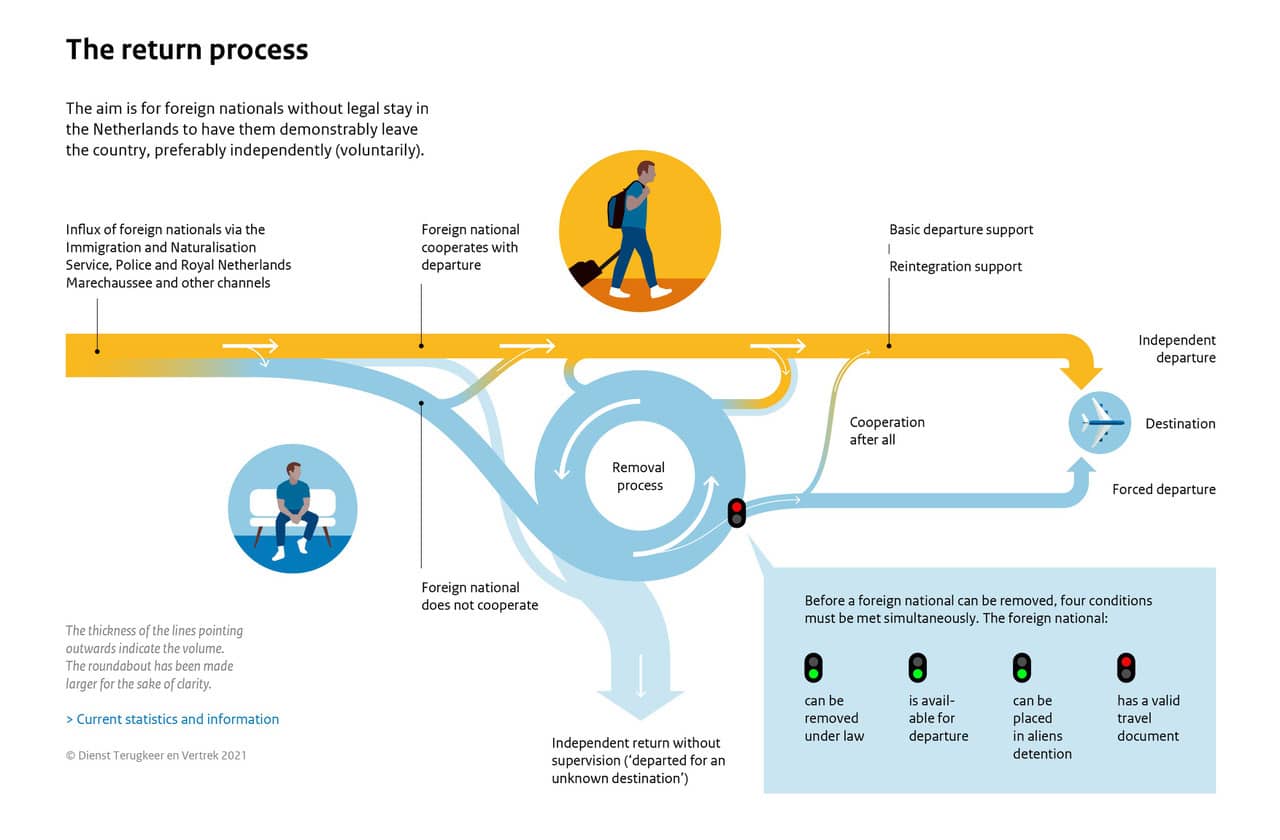Foreign nationals without a residence permit are personally responsible for their departure from the Netherlands. They can get help of the Dutch government or other organisations to arrange their return.
Forced departure is only applied when the foreign national fails to leave the Netherlands voluntarily and does not accept assistance from the DTenV or other (non-profit) organisations. Foreign nationals that have been placed in a criminal justice detention facility are forced to depart from the Netherlands immediately following their detention period.
On the next pages you can read more about the return process and the way DTenV works. The infographic below shows the the return process and the complexity of forced departure. Below is a print version in the form of a pdf.
Return process

